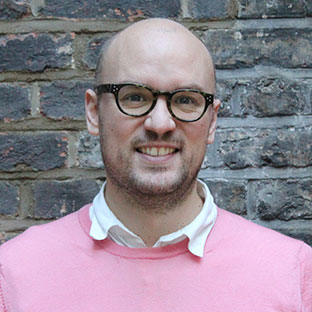Education Secretary Damian Hinds' recent speech at the Resolution Foundation introduced a new focus for the Department, something he called 'the last taboo' in education policy: the home learning environment. The tone of his speech hinted that government expects home learning to be something of a home front, with parents as potential opponents, entrenched and resistant to change. The irony is that government-funded Children’s Centres have worked effectively with parents as allies in improving home learning for years, but their existence and the services they have provided is under threat.
Hinds is certainly right to focus on the early years and home learning as a way to help close the yawning education gap that exists between disadvantaged children and their wealthier peers. Parental involvement in early learning has a greater impact on children’s educational achievement (and their well-being) than any other factor, including family income or parental education. Children from more affluent homes tend to have a richer home learning environment: they are read to more, will hear more words, will have more books available and will be taken to more activities outside the home. These differences contribute to the fact that nearly 50% of disadvantaged children do not secure the knowledge, skills and understanding expected by the time they finish Reception. Around 25% are unable to communicate effectively, control their own feelings and impulses or make sense of the world around them to ensure that they are ready to learn. A slow start continues to cause challenges later, with 66% children who start school not ready failing to meet the expected level of achievement at the end of primary school. The poorest children have the most to gain from support for good quality early years education - and the most to lose if they don’t get it.
Anyone listening to the Secretary of State’s comments would be forgiven for thinking that this ‘last taboo’ was something that had hitherto been out of the scope of government actions in support of early education. They’d be mistaken, however. Since their inception in 1999, Sure Start Centres (latterly ‘Children’s Centres’) have provided centralised, universal services - including access to information, family support, childcare and early years education - for families with children under 5, all within ‘pram-pushing distance’ for most parents. . A national evaluation have shown that children’s centres have a positive influence on the home learning environment and that their universal, open-access services engage those most in need, without the stigma of referral or the risk of missing those who do not (self-)?identify a need.
So it’s not without irony that, as government proclaims home learning as a priority, the heat has gone out from under Children’s Centres. Inspections have been suspended since September 2015, meaning that quality and impact cannot be rigorously assessed. Even more critical is the alarming rate at which centres are closing and their universal offer disappearing, replaced by residual, needs-assessed services. A recent Sutton Trust report suggested that over 1000 of 3632 (28%) ‘registered centres’ have closed since their peak in 2009. Local authorities in localities as varied as Camden, Staffordshire and Oxfordshire had closed over 70% of their centres up until April of this year. And the closures are set to continue: this year Warwickshire expect to lose 64% of its centres, Leicestershire and Somerset 66%. The principal cause of the closures? Local authority budget cuts that have followed reductions to their central government funding.
There is some indication that although centres are closing, local authorities are thinking entrepreneurially about how to preserve their services. Often this means consolidating and co-locating what had been Children’s Centre services – albeit often in reduced form - with other health and social care services for families and children up to 19yrs. Some local authorities appear to be using the cuts as a way of re-thinking their relationships with parents: Waltham Forest, for example, consulted with 850 families to understand barriers to access of children’s centre services, in order to develop a new model for service delivery.
The RSA is hoping to investigate these entrepreneurial responses to understand the extent to which local authorities, parents and communities are finding new ways to retain, or indeed improve provision and access. And if so, can these new developments provide a different narrative for the relationships between local government, education providers and parents to the one implied by the Secretary of State in his ‘last taboo’ comments? Can they demonstrate how parents – including those who are ‘time poor, struggling to make ends meet [and who may have their] own literacy struggles’ - can be partners and assets in improving early childhood education and care, rather than the reluctant recipients of state interventions?
If you know of or are involved in innovative responses to Children’s Centre closures and to improve home learning environments, we’d be very interested to hear from you. Please contact: mark.londesborough@rsa.org.uk

Be the first to write a comment
Comments
Please login to post a comment or reply
Don't have an account? Click here to register.